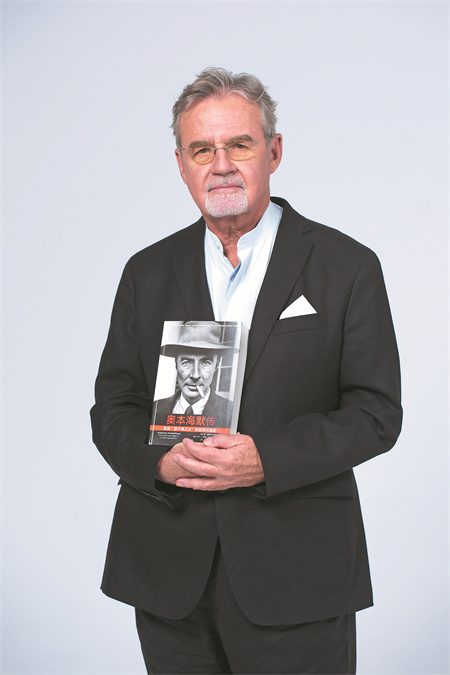

American historian and biographer Kai Bird was recently in Shanghai to promote the Chinese edition of American Prometheus: The Triumph and Tragedy of J. Robert Oppenheimer.
Over the past six months, the 72-year-old also traveled to Italy and Britain to discuss his 2005 biography of the theoretical physicist, also known as "the father of the atomic bomb".
Bird co-authored the book with the late historian Martin J. Sherwin. Sherwin initiated the biography project in 1980 and spent the following 20 years doing research and interviews. He later realized that, without additional help, his undertaking would be "a Sisyphean operation", (unfinished) so he invited Bird to join him in writing the book in 2000.
The 700-page book is centered on stories from Oppenheimer's life interwoven with science, World War II, and Cold War politics.
The book has won several accolades, including the 2006 Pulitzer Prize for a Biography or Autobiography. Despite these achievements, it was not a bestseller until recently.
"The Pulitzer is a big thing, and it's very nice to win that prize, as it helped to sell more books. But still it sold modestly," Bird says in an exclusive interview with China Daily.
"It never got on the The New York Times bestseller list or elsewhere. It stayed in print. I was kind of disappointed that it didn't get a wider readership."
While it had also been optioned many times for a movie, every attempt failed until the most recent effort by Christopher Nolan.
Following the release of Nolan's film Oppenheimer in July, the book finally found its way into The New York Times bestseller list. In fact, the book is still there today, five months on. The three-hour movie has also become the most successful biopic ever — its box office takings just two months after its release amounted to a whopping $913 million globally.
Bird admits he wasn't fully prepared for the movie's success. In fact, he even doubted if Hollywood was capable of making such a film in the first place.